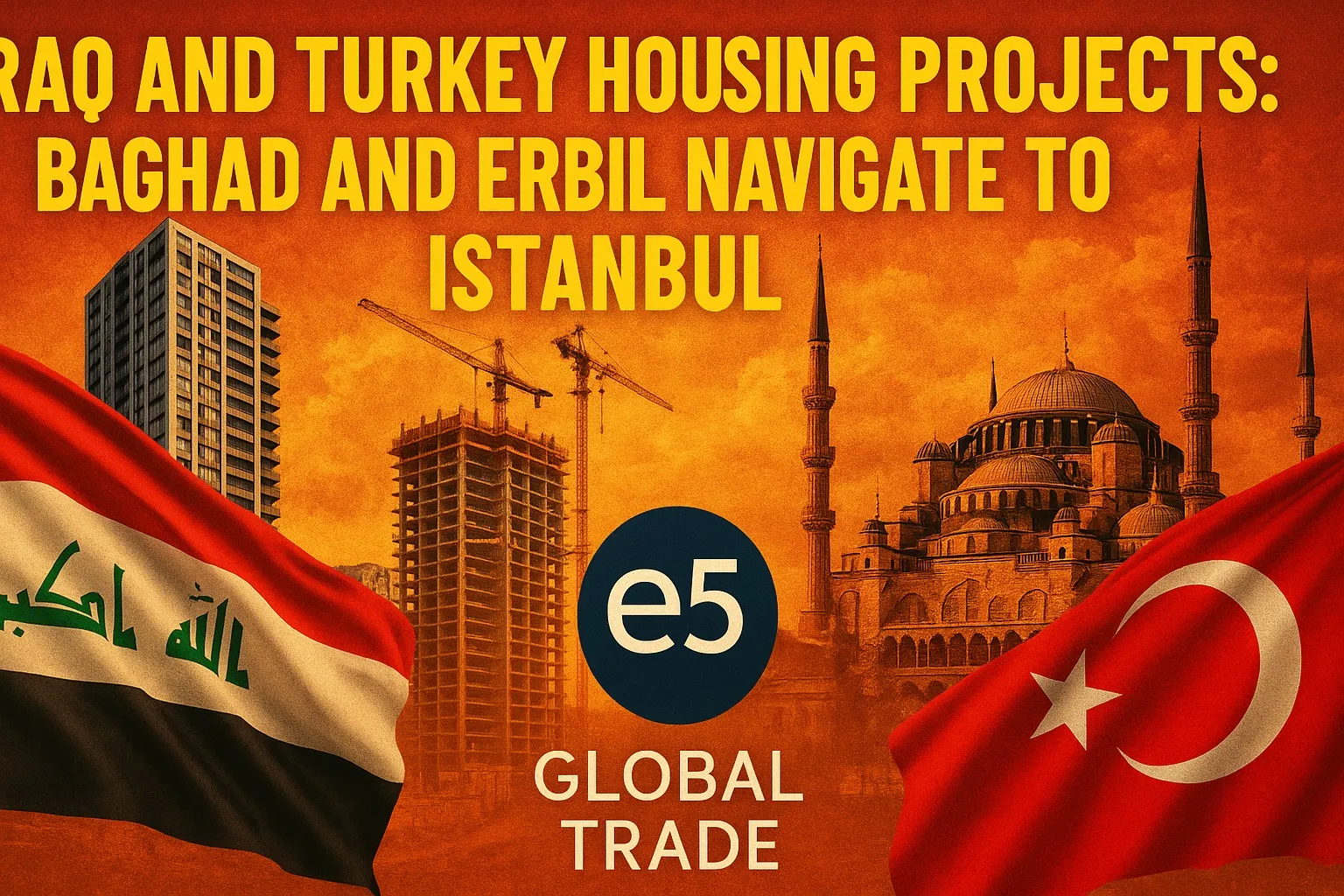Istanbul's Attractiveness A Sign of Prosperity for Iraq's New Homeowners In recent years, Istanbul, Turkey's most populous city, has become not only a cultural, historical, and economic center but also a hub for property and residential investment throughout the Middle East. This trend is now being further strengthened by the influx of wealthy and middle-class families from Iraq: those from Baghdad and Erbil have gravitated towards Istanbul. This isn't just a "foreign buying trend." It's a profound socioeconomic movement fueled by political instability, economic uncertainty, and a quest for quality of life. 🇮🇶 What's Happening in Iraq? Iraq has been undergoing major reconstruction since 2003. However, this process has been plagued by housing and infrastructure deficiencies, particularly in Baghdad and the Kurdistan Region (Erbil, Sulaymaniyah): Baghdad: More than 40% of the population lives in inadequate or poor-quality housing. Electricity, water, and sewage problems persist. Erbil: While relatively stable as the capital of the Kurdistan Region, rapid population growth and a lack of foreign investment are exacerbating the housing shortage. The economic recession, exchange rate fluctuations, and banking system limitations make it difficult for local investors to undertake long-term housing projects in their own country. In this situation, many wealthy Iraqi families and the middle class see Turkey as a safe haven. Understanding with Real Data As of 2023, the number of homes purchased by Iraqi citizens in Turkey exceeded 2,800—up from just 650 in 2020. (Source: Turkish Land Registry and Cadastre General Directorate) Wealthy families in Erbil are gravitating towards beachfront villas, particularly in Sarıyer and Bebek. Businesspeople from Baghdad are investing in combined office and residential projects in Maslak, Levent, and Gayrettepe. Some Iraqi investors are generating passive income by renting out properties in Istanbul—monthly rents of $1,500–$3,000 are 7–10 times higher in Iraq. An Iraqi Investor’s Word “I could only buy an apartment in Baghdad for $100,000—but it was poor quality, with intermittent electricity and water shortages. In Istanbul, I bought an apartment with a Bosphorus view for the same money. My son goes to English school, and my wife can easily go to the hospital. This is now my second home.”—Ahmed R., a Baghdad-based entrepreneur who bought a house in Istanbul three years ago Turkish-Iraqi Collaboration: Not Just Real EstateThis housing trend isn't limited to individual preferences. Turkish construction companies are now developing housing projects in Iraq (a 5,000-unit project is currently under construction in Erbil). Iraqi banks are entering the Turkish money market by opening branches in Istanbul. Home-viewing trips are organized for Iraqi families as part of tourist tour packages, called the "Istanbul Real Estate Tour." This demonstrates trust and cooperation. Turkey isn't just "selling houses" to Iraq; it's "offering them a future." The Future: Istanbul, Iraq's New "Center"Forecasts for 2025 indicate that Iraqis will purchase over 5,000 homes annually in Turkey. This number is reminiscent of the influx of Syrians between 2015 and 2020—but this time, the flow is focused not on refugees but on investors. Istanbul is no longer just “a city on the banks of the Bosphorus.” It is becoming the new living center of the Middle East. And those arriving from Iraq are leading this transformation. Conclusion: Why Istanbul?Safe → Modern compared to Iran, Syria, Iraq → Infrastructure, technology, educationAccessible → Prices still competitiveCultural → Similar values, similar lifestyleIstanbul is not just a city for Iraqis—it is a source of hope.
E5 Global Trade | Yazılar
Iraqi and Turkish Housing Projects: Baghdad and Erbil Heading for Istanbul


